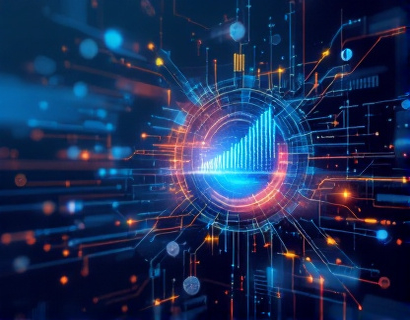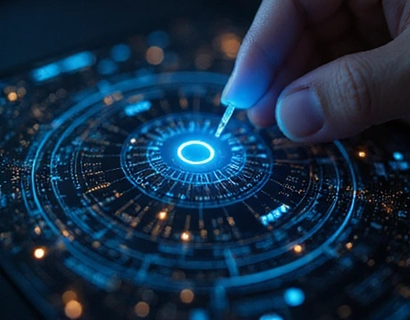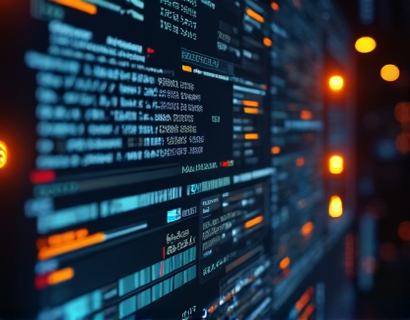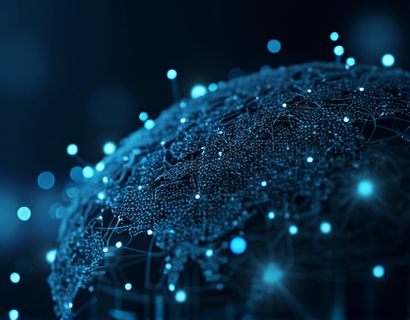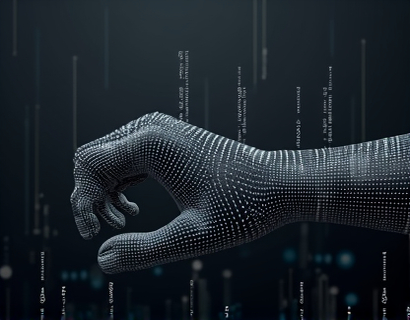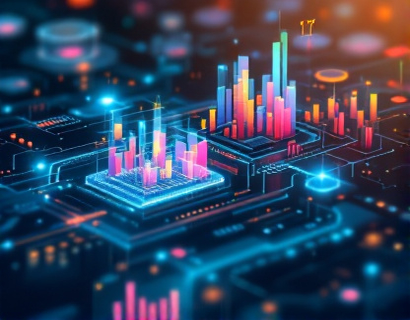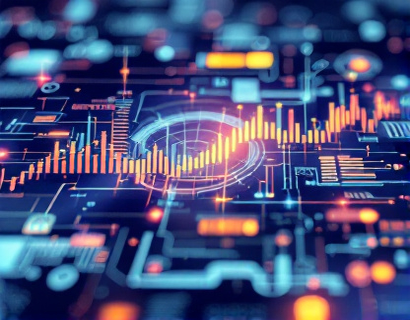Revolutionizing Digital Engagement: The Synergy of AI and Cryptocurrency in the Ucosystem
The digital landscape is undergoing a profound transformation, driven by the convergence of artificial intelligence (AI) and cryptocurrency. This synergy is not just a technological curiosity but a powerful force reshaping how users interact with apps and services within the Ucosystem. By leveraging the unique capabilities of both AI and cryptocurrency, platforms are emerging that promise to deliver unprecedented levels of engagement, security, and personalization. This article delves into the transformative power of this combination, exploring how it is redefining digital experiences and opening new avenues for innovation.
The Intersection of AI and Cryptocurrency
AI and cryptocurrency may seem like disparate technologies, but their intersection is fertile ground for innovation. AI, with its ability to process vast amounts of data, learn from patterns, and make intelligent decisions, complements cryptocurrency's focus on decentralization, security, and transparency. Together, they create a powerful toolkit for developing applications that are not only smart and adaptive but also secure and trustworthy.
One of the key areas where AI and cryptocurrency intersect is in the realm of smart contracts. Smart contracts are self-executing contracts with the terms of the agreement directly written into code. When combined with AI, these contracts can become even more dynamic and responsive. For instance, AI can analyze real-time data to trigger specific actions within a smart contract, ensuring that the terms are executed precisely and efficiently. This synergy enhances the reliability and automation of transactions, reducing the need for intermediaries and lowering costs.
Enhancing User Interactions with AI-Driven Personalization
One of the most significant impacts of AI in the digital ecosystem is the ability to deliver highly personalized experiences. By analyzing user behavior, preferences, and interactions, AI algorithms can tailor content, recommendations, and services to individual needs. This level of personalization is crucial in maintaining user engagement and satisfaction, especially in a crowded digital landscape where attention is a scarce resource.
In the context of cryptocurrency, AI-driven personalization can enhance the user experience on blockchain-based platforms. For example, a cryptocurrency wallet app powered by AI can learn a user's spending habits and suggest optimal times for transactions to minimize fees, recommend wallet upgrades based on usage patterns, and even alert users to potential security threats. This not only improves the usability of the app but also builds trust and loyalty among users.
Security and Trust through Blockchain and AI
Security is a paramount concern in the digital ecosystem, and the combination of blockchain and AI offers robust solutions. Blockchain's inherent transparency and immutability provide a secure foundation, while AI can enhance this security by detecting and mitigating threats in real-time. Machine learning algorithms can analyze transaction patterns to identify anomalies and potential fraud, allowing for proactive measures to protect user assets.
Moreover, AI can improve the user experience by simplifying complex security protocols. For instance, AI-driven biometric authentication methods, such as facial recognition or voice recognition, can provide a seamless and secure way for users to access their digital assets. This not only enhances security but also makes the process more user-friendly, reducing the friction often associated with traditional authentication methods.
Decentralized Applications and AI-Enhanced Functionality
Decentralized applications (dApps) are at the forefront of the digital revolution, offering users greater control and autonomy. When AI is integrated into dApps, the functionality and efficiency of these applications are significantly enhanced. AI can power intelligent agents within dApps, enabling them to perform tasks such as data analysis, predictive modeling, and automated decision-making. This not only streamlines processes but also opens up new possibilities for innovation.
For example, an AI-powered dApp in the finance sector can analyze market trends, provide real-time insights, and suggest investment strategies. Users can interact with these insights through a user-friendly interface, making complex financial decisions more accessible and informed. The decentralized nature of these applications ensures that data remains secure and user-controlled, while AI ensures that the insights provided are accurate and timely.
Gaming and Entertainment: A New Frontier
The gaming and entertainment industries are also witnessing a transformative shift thanks to the combination of AI and cryptocurrency. Blockchain technology enables the creation of unique digital assets, such as non-fungible tokens (NFTs), which can represent in-game items, characters, or even entire virtual worlds. AI enhances this by creating more immersive and dynamic gaming experiences.
AI-driven NPCs (non-player characters) can exhibit more human-like behavior, adapting to player actions and creating a more engaging and realistic environment. Additionally, AI can be used to generate procedural content, ensuring that each player's experience is unique. Cryptocurrency adds a new layer of value, allowing players to earn, trade, and own digital assets, thus creating a more economically vibrant and interactive gaming ecosystem.
Supply Chain and Logistics: Transparency and Efficiency
Beyond the digital realm, the combination of AI and cryptocurrency is revolutionizing supply chain and logistics. Blockchain provides a transparent and immutable ledger for tracking goods from production to delivery, ensuring authenticity and reducing fraud. AI can optimize supply chain operations by analyzing vast amounts of data to predict demand, manage inventory, and streamline transportation routes.
Cryptocurrency facilitates seamless and secure transactions across the supply chain, reducing the need for intermediaries and lowering transaction costs. Smart contracts can automate payment processes based on predefined conditions, ensuring that all parties are held accountable and transactions are executed efficiently. This synergy not only enhances transparency but also improves the overall efficiency and reliability of supply chain operations.
Healthcare: Enhancing Patient Care and Data Security
In the healthcare sector, the integration of AI and cryptocurrency is poised to transform patient care and data management. Blockchain can secure patient data, ensuring privacy and compliance with regulations such as HIPAA. AI can analyze this data to provide personalized treatment recommendations, predict disease outbreaks, and optimize resource allocation.
Cryptocurrency can facilitate secure and efficient transactions for healthcare services, prescriptions, and insurance claims. For instance, patients can use cryptocurrency to pay for services directly, reducing administrative overhead and ensuring that transactions are transparent and tamper-proof. AI-powered chatbots and virtual assistants can also enhance patient engagement, providing 24/7 support and guidance.
Challenges and Considerations
While the potential of AI and cryptocurrency in the digital ecosystem is vast, there are several challenges that need to be addressed. Regulatory uncertainty remains a significant hurdle, as governments worldwide are still grappling with how to regulate these emerging technologies. Ensuring compliance while fostering innovation is a delicate balance that platforms must navigate.
Technical challenges, such as scalability and interoperability, also need to be overcome. Blockchain networks must be able to handle high volumes of transactions efficiently, and different blockchain platforms need to work seamlessly together. AI models require substantial computational resources and high-quality data, which can be costly and resource-intensive to obtain and maintain.
Despite these challenges, the benefits of combining AI and cryptocurrency are undeniable. As technology continues to evolve and regulatory frameworks become more clear, the digital ecosystem is poised for a new era of engagement and innovation.
Conclusion
The convergence of AI and cryptocurrency is reshaping the digital landscape, offering unprecedented opportunities for enhancing user interactions, security, and personalization. From smart contracts and decentralized applications to gaming and healthcare, the applications are diverse and transformative. As platforms like the one described continue to leverage these technologies, users can expect more secure, efficient, and engaging digital experiences. The future of the Ucosystem is bright, driven by the powerful synergy of AI and cryptocurrency.


























